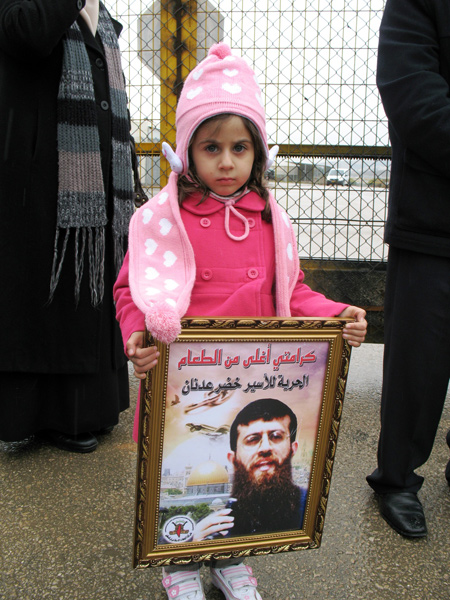-
Randa Adnan: The world must intervene to save my husband
by Joe Catron 13 February 2012 | Mondoweiss As Khader Adnan entered his 59th day on hunger strike, his wife Randa appealed for the international community to end his isolation and save his life. “My husband is dying inside an Israeli jail. The world should make sure I am able to see him,” she said. […]
-
Commemorating Palestinian Land Day: Join the BDS Global Day of Action on 30 March 2012!
10 February 2012 | Palestinian BDS National Committee Commemorating Land Day, the Palestinian BDS National Committee (BNC) invites people of conscience around the world to unite for a BDS Global Day of Action on 30 March 2012 in solidarity with the Palestinian people’s struggle for freedom, justice and equality and for Boycott, Divestment and Sanctions (BDS) against Israel until it […]
-
“It’s Hevron. It’s very dangerous” warn occupation forces in Al Buwayra
by Pascaline 12 February 2012 | International Solidarity Movement, West Bank On Sunday 12 February, about 200 settlers, mainly youth, gathered at the bottom of Assima settlement in Al Buwayra to cultivate and steal Palestinian land with accompaniment by the Israeli military. They were carrying Israeli flags and posters. The military opened a gate leading […]
Action Alert An Nabi Saleh Apartheid Wall Arrests BDS Bethlehem Bil'in Cast Lead Demonstration Denial of Entry Ethnic Cleansing Farmers Gaza Global Actions Hebron House Demolition International law Israeli Army Jerusalem Live Ammunition Nablus Ni'lin Prisoner Ramallah Rubber-coated steel bullets Settlement Settlers Settler violence Tear-Gas Canister Video


